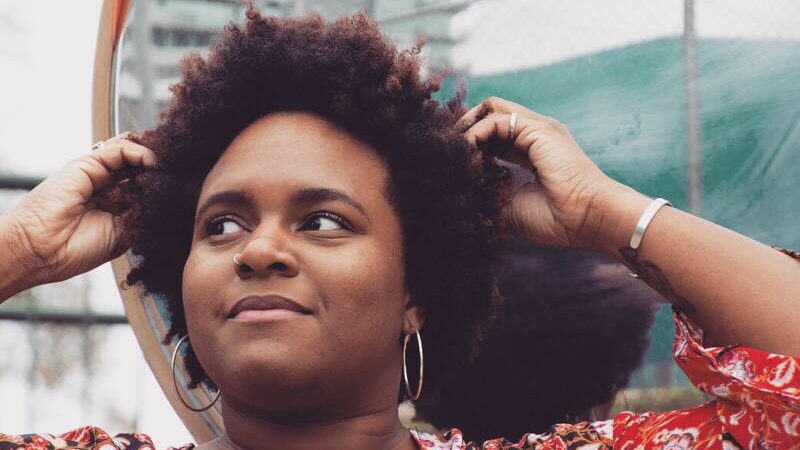Being a member of any marginalized community presents its struggles, but existing at the intersection of several minority groups layers on additional challenges.
Briona Jenkins, a queer Black woman, is all too familiar with living at the crossroads of multiple identities that make life in America more difficult and more dangerous. Despite the barriers and risks, she’s found her calling in being visible and fighting for a more just and equitable world.
Jenkins grew up on the East Coast in a close, supportive Black family that taught her to take pride in her roots, practice activism, and lift up those around her. She carried that generous spirit with her, studying social work in college and then working in the nonprofit space. Upon coming out as queer in her mid-20s just after the Pulse shooting, Jenkins relocated to Austin, Texas, and became more active in fighting for the LGBTQIA community.
After working in several different nonprofit jobs, she spent two years working full-time for Out Youth, an Austin organization that supports LGBTQIA youth. In-between jobs during the pandemic, and in the wake of the Black Lives Matter movement, Jenkins officially started her consulting business, Briona Jenkins Consulting.
Jenkins now has a day job as Director of Development at Austin Justice Coalition, but she continues to use her free time to do public speaking, provide diversity/equity/inclusion (DEI) training and help nonprofits with marketing and fundraising. Jenkins also hosts a weekly podcast (The Tea With Bri), serves on nonprofit boards, and works tirelessly as an activist to make the world a better place.
This is Jenkins’ story of coming out and embracing visibility as a queer Black woman, finding her passion in nonprofits and DEI work, and learning how to take care of herself given the emotional labor her work requires.
Profiles in Pride: To start, when did you realize you were queer and come out?
Briona Jenkins: I didn’t come out until I was 26, but I’d always questioned my sexuality. Growing up in Connecticut, I was around folks who were somewhere along the LGBTQIA spectrum.
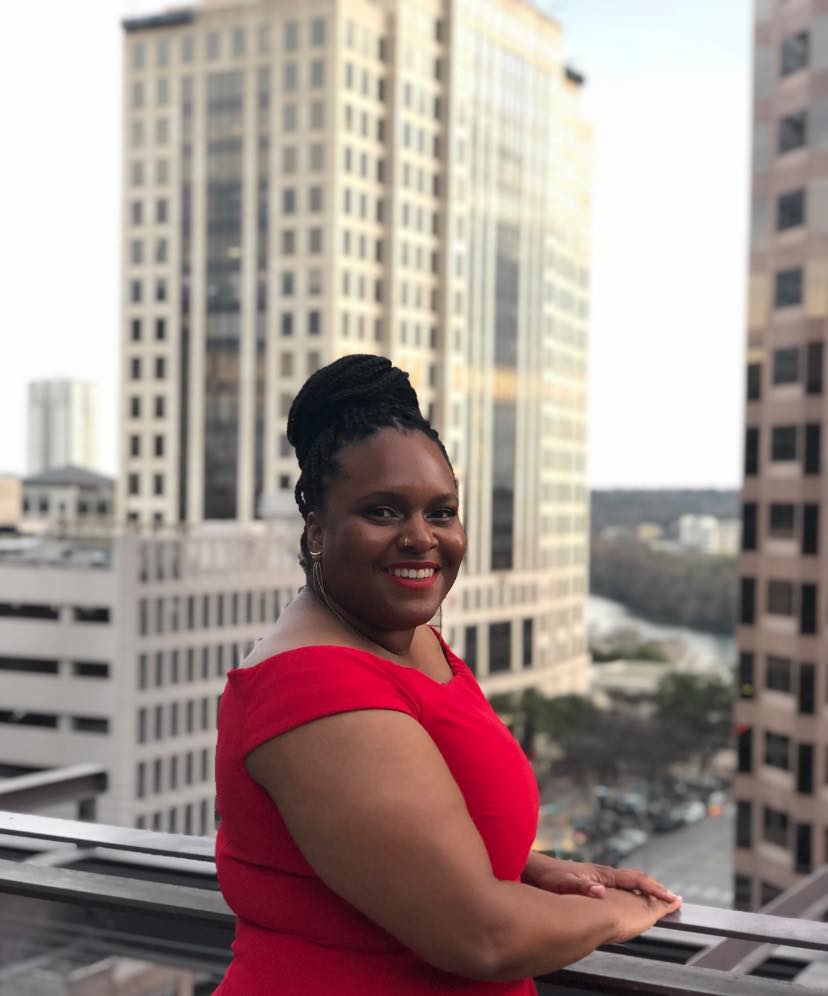
It wasn’t until I visited Austin in 2015 when I was like, I think I might be queer! Then I moved here. At that time, I’d already come out to some friends. My best friend was the first to know and he’s gay, and he said he’d known since I was 12! Then the Pulse nightclub shooting happened and I came out to everyone.
It was nerve-wracking because I come from a very religious family. I called my godfather, my godmother, and my dad, and I chickened out for all three. They all texted me, and I texted back and came out, and they all said, “We love you, we don’t care.” I’m very, very lucky. Coming from a large, supportive, religious family, it was very scary for me to think about losing them, so I’m super grateful they’ve been so accepting.
PIP: When did you find your way into activism?
BJ: It started when I was super young. I grew up in a pro-Black family that was super involved in the civil rights movement; my family grew up in the South and then moved to the North. I grew up around those folks, being told my whole life that my life and identity as a Black woman mattered, that my voice mattered.
When I was growing up, my godfather was the pastor of a church his father founded. When his dad founded that church, he also founded the Love March in honor of Dr. Martin Luther King. That march has been happening since 1971, so I started marching when I was 5 in 1995. It still happens now, so it’s been this huge family generational thing. When people start having kids, they bring their kids, and we invite our friends. It’s become a really huge thing in Connecticut.
That’s how my activism sort of started. Also, growing up in the Black church and being told I can take up space, and being encouraged when I failed. By that I mean like if we were singing a song for choir and forgot the words, or we were doing a dance and messed up, or we were putting on a play and forgot a line, people were always like, “You got it!” They were very encouraging and we were supported in all we did, so I could constantly fail forward.
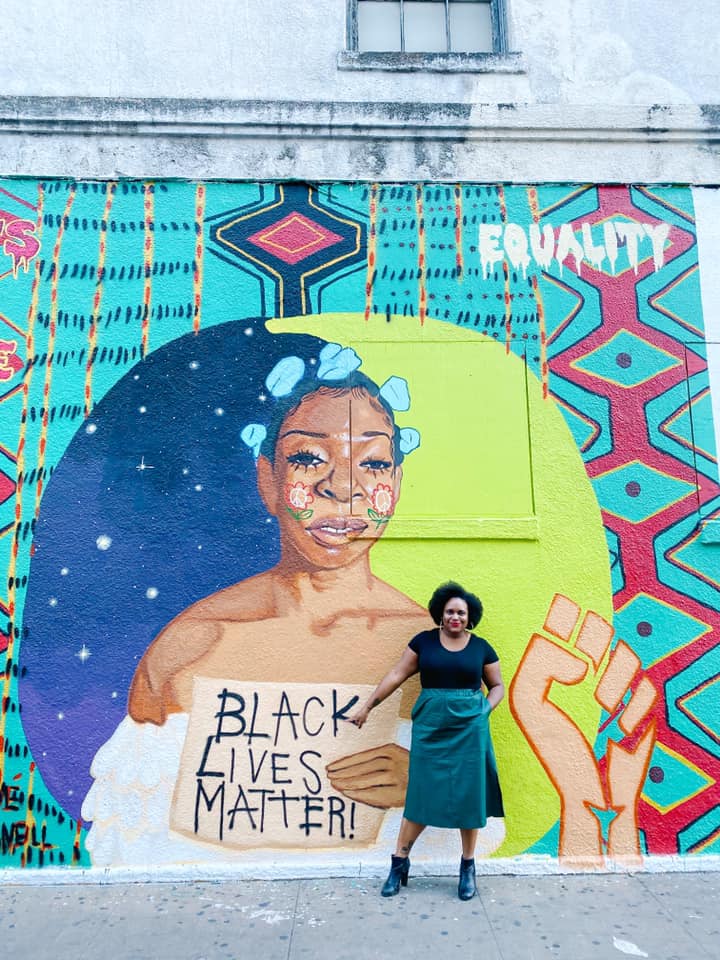
Also growing up in the church, we were constantly taught to be giving and pay it forward. My godmother was probably the first person I saw give money to a person experiencing homelessness. I remember asking her why she did it, and she said as Christians, it’s our job to give help when we can and not be judgy about it.
For me, it was the first paying it forward moment I understood, like nonprofit giving. My parents were married and they owned our three-bedroom home; I grew up very privileged, and I knew that. So when my mom passed when I was 15, it was an interesting experience to have so many people rally around us, even people who didn’t know us. My friends, my family; it kept extending out.
Seeing that sort of communal giving really got me into activism and constantly paying it forward. I ended up going to college to study sociology and became a social worker because I wanted to constantly pay it forward. I know my life would have looked a lot different if people didn’t step up for me.
After I finished college, I worked at a couple of nonprofits. One helped adults and children with developmental disabilities, and I went to work at a school for children with autism. For my first full-time job, I worked at an organization providing assistance for folks experiencing homelessness, but we also did affordable housing and onsite case management. When I first started, I had to help get 12 folks into housing. I did that, then I went to permanent support of housing and was an onsite case manager.
That was also the first time I saw fundraising as an option. I was ‘voluntold’ I was doing our fundraiser that we had every year, which was our most successful year. I was at that job for two years, then visited Austin and moved here seven months later.
I found a job with an organization that did affordable housing, and after some time there, I worked for United Way for Greater Austin, which helps with poverty here in Austin. Then I got a job at Out Youth, and I was there for two years. It was my first real full-time job as a nonprofit fundraiser. I also did a lot of community organizing, connecting our volunteers, speaking engagements, and all those sorts of things.
Then 2020 hit and I moved to another job for an organization that both created software for progressive folks running for office and registered voters. As Covid was picking up, I got let go from that job and was unemployed. I took that time to start my consulting business, Briona Jenkins Consulting.
PIP: What type of work do you do in your consulting business?
BJ: My consulting business is a company that serves three-fold. First, I do nonprofit consulting, so that’s smaller nonprofits that can’t afford a full-time fundraiser. I help them with a fundraising plan or planning fundraising events. I also help with things like their website and marketing.
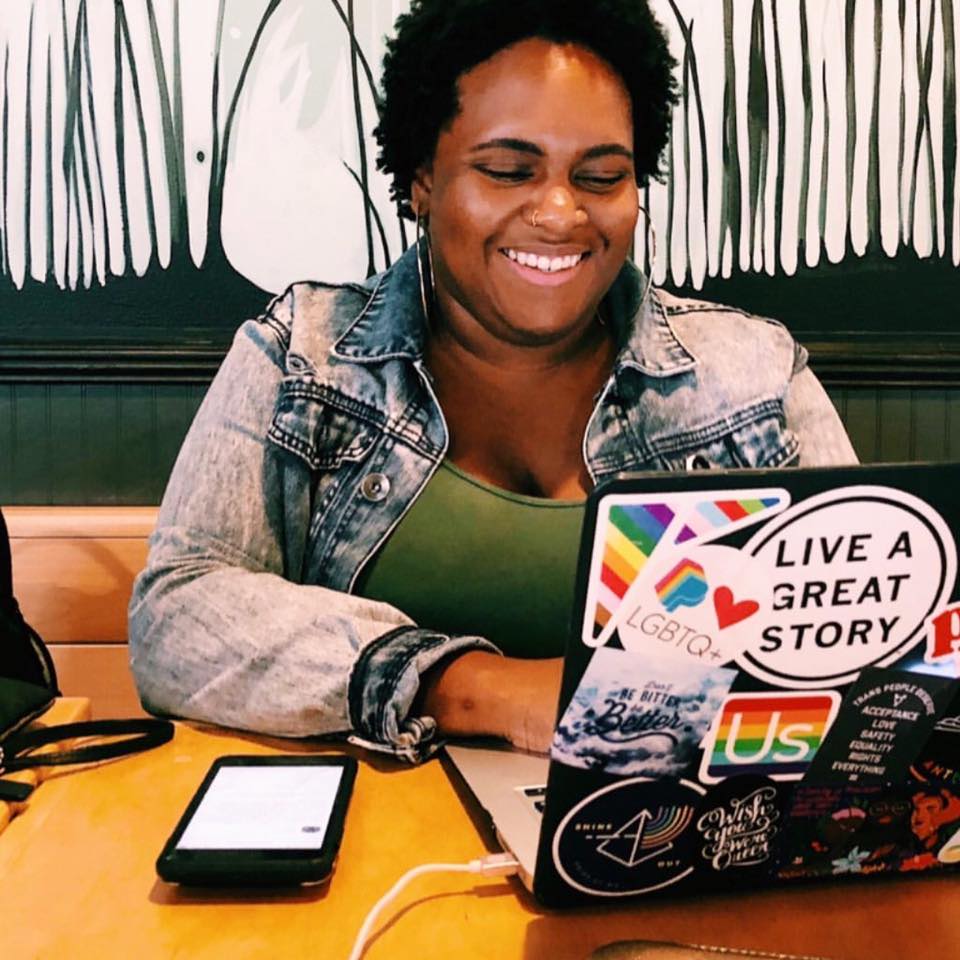
The next, which is my bread and butter, is my diversity, equity, and inclusion (DEI) consulting, which is public speaking about my lived experience, but also what it means to be anti-racist. What it means to be involved in making sure we have reproductive justice for all folks. I also do trainings and facilitations. For example, I’m hosting a book club with a local brewery in town, working with the book Me and White Supremacy.
The third wing is everything I do in my day-to-day. My podcast recording, and I have some folks who want me to train them in how to do public speaking. Sometimes I’ll do job training, like for people who want to know how to diversify their board. It’s like a beautiful mish-mash of things I just really enjoy that people want to pay me to talk to!
I also started a job in December as a director of development for Austin Justice Coalition. While I’ve lived in Austin almost five years, I’ve also sat on four boards here. I’m always excited and looking for things to do, knowing that Austin has a lot of nonprofits that are doing really great work and me constantly wanting to pay it forward.
PIP: What was your time like at Out Youth, getting to help support LGBTQIA kids in the Austin area?
BJ: I didn’t work with the youth too much, because I was more behind the scenes. But some nights I’d stay and be at group, and it was always so interesting for me to see them just being so authentic in the space. I don’t think I’d ever seen kids so carefree. We know middle school and high school are so tough and you have to put on this brave face, this mask, if you will. So for them to come into this space and just be able to be authentically themselves was so beautiful and enriching to see.
I also spent a lot of time talking to parents. I come from a very supportive family, and I saw some parents not being very supportive of their kids. I was able to say, “Hey, I’m a Black queer person in this country, and I know how terrifying that must be for my parents.” I always give the example of my godmother, who’s like my second mother. She and I had the conversation because one of her sons came out and she had a tougher time with it. We were talking, and she said, “It’s not that I don’t accept him, it’s that I know his life will be more difficult because of this.”
So I would tell parents that being in this community doesn’t mean like what you see in the old movies, where everyone is dying of AIDS or all drug addicts. We’re trying to unpack and dismantle these myths we’ve heard and seen.
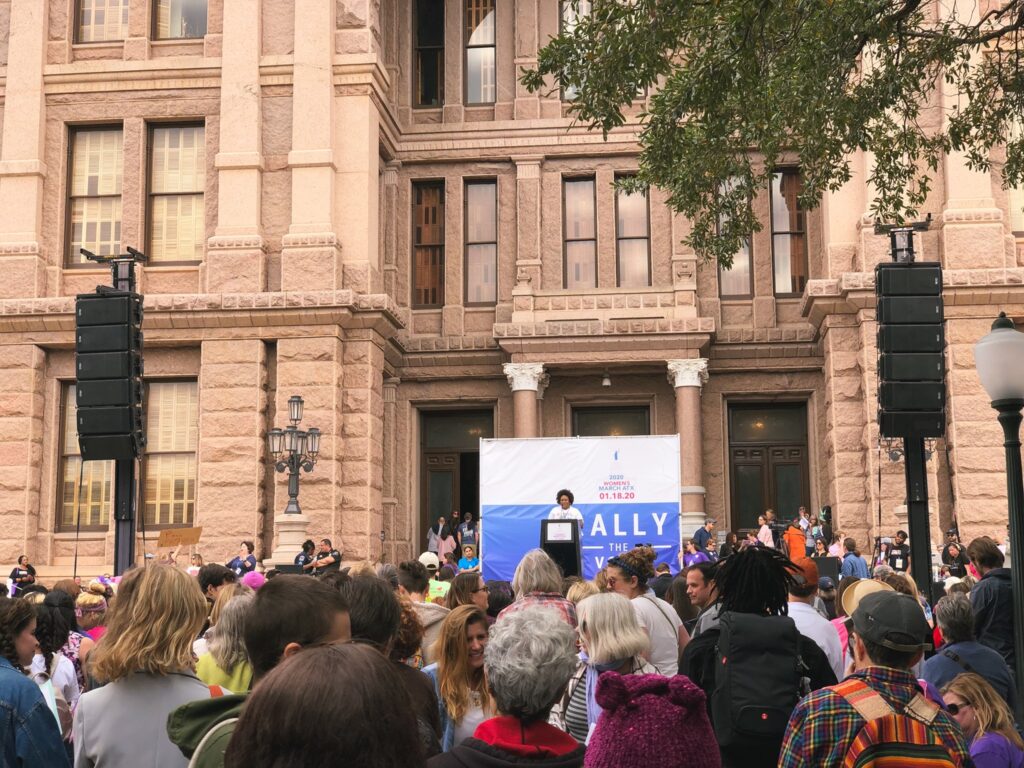
That was a beautiful experience. It was also an interesting environment because Austin is only 8% Black, and I was sometimes the only Black person in that space. Even though Black youth sometimes weren’t using the space, I wanted to make sure the space was equitable and that we were making space for people of all races and religions.
For me, I was still sort of doing activism work in this nonprofit space. I was in a place that was super supportive, and I was allowed to do a lot of things, like fail forward again. Even if we weren’t having group, sometimes the kids in the neighborhood would just stop by because it was such a safe space for them. That warmed my heart. We may not be able to serve everyone we want to, but the kids we are serving, it’s impacting their lives a lot.
PIP: That’s incredible. You mentioned how you bring several different identities to the work you do. Could you share how you view this intersectionality and how it plays a role in your activism?
BJ: Ah, intersectionality. For me, being able to hold these three major identities — black, queer, and female/woman — I always think of it like different bricks in a house. I’m this whole house, then the bricks fill in who I am. Although you see the bricks, one brick doesn’t mean that’s all I am. That’s the analogy I use. These things are important in creating who I am, but in the big picture, I’m still a human. I tell people all the time that I have the privilege of being able to out myself at every job and be employed, and I know that.
So for me to show up in spaces with these three major intersections that I hold, I think it often gives people the permission to come out themselves. I always feel that if me sharing my story gives anyone the courage to share theirs, I’ve done all I can. Plus, people seeing me lets them know that these spaces are out there and they have every right to be there.
I think sometimes even my activism is just showing up, or being at a job, or being a familiar face. Austin Justice Coalition does great work, but there are folks who still don’t see themselves in this work. When I joined, some of my friends reached out and said, “Listen, seeing you there meant I had a space there to come and ask for things.” Especially Black queer folks, because we often hear that Black trans women are murdered at a way higher rate, or Black queer kids leave home because they don’t really have anywhere else to go.
I think that’s a really big conversation we’re having, especially with the resurgence of BLM last year — we mean all Black lives matter. I think a lot of people only think of cishetero men when they think of Black lives matter. But you see the rally around Breonna Taylor this last year, and also having the conversation around Black trans folks who are murdered.
I‘m not trans, but for me to be in this community and constantly be bringing that conversation to the table — I’m an ally to the trans community, and that means I have to show up and say things.
I think there’s a lot of intersections with race too. Austin Justice Coalition is focusing on making Austin a more equitable place for Black people, but we also talk about marginalized folks, period. That’s any person of color, any people of low income or experiencing homelessness, it’s all those who kind of fall through the cracks, if you will. Now too we also see the conversation really focusing on our Asian community, the AAPI community and abuse and racism they’re facing. So it’s also a conversation we’ve been having, like how can we show up for them? They showed up for us with Black Lives Matter, how can we pay it forward for them? It’s like that speech that says “first they came for us.” It’s very true.
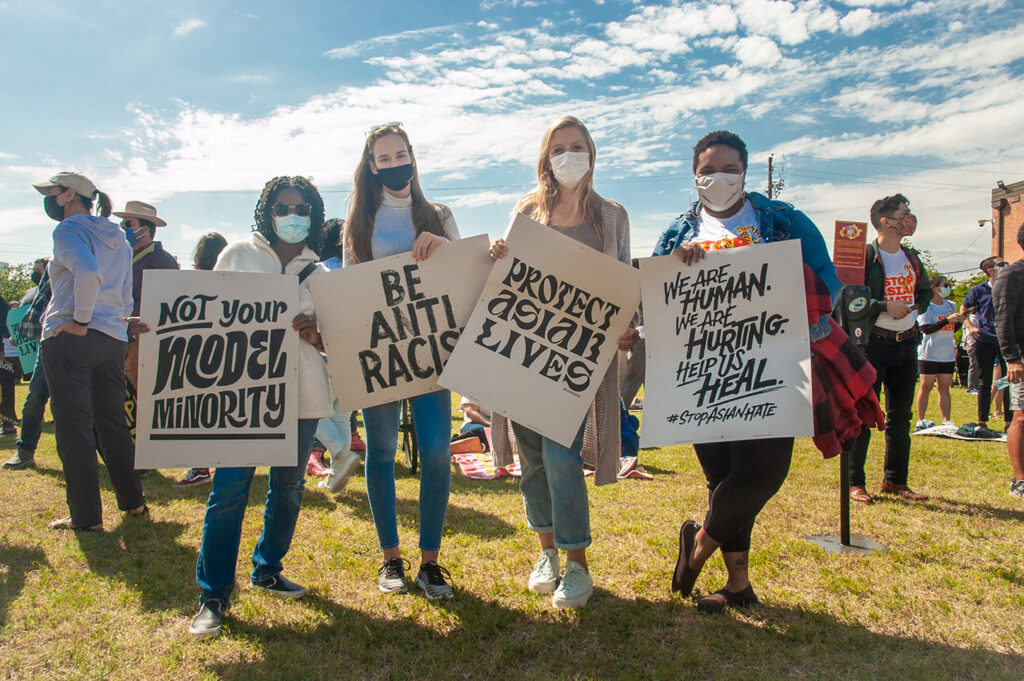
We can’t fall into this infighting of races, especially having to unpack the model minority myth with a lot of Asian folks, who for so long in our country have been seen as docile and palatable, with all these stereotypes and pressures society has put onto them. Now that they’re speaking up, and the retaliation they’re experiencing now — the Black community feels that deeply. It’s been really important to have those conversations with our AAPI community members, friends, and colleagues.
PIP: Could you talk more about the difficulties of infighting and discrimination within marginalized groups? Like we sometimes see racism within the LGBTQ community, or transphobia within the Black community, which can make progress harder.
BJ: I was recently having the conversation of colorism in the Black community with a group I was talking with. This dates back to slavery, how if you were lighter-skinned, you were essentially an enslaved person who worked in the house. But if you were more dark-skinned, you worked in the fields.
We see that even now in our society, where light-skinned women are more lusted after than dark-skinned women. You also see how racist the BMI is; this was created for white men centuries ago, and if you don’t fall into these lines, you’re obese or fat, so you also see fatphobia play in. We also see cultural appropriation. It’s OK for white women to have bigger lips or a bigger butt, but on Black women, it’s seen as undesirable.
We see this constantly, the pressure of being a Black woman. You can’t be too loud, you can’t be too aggressive, you can’t wear this, you can’t say this. We also talk to Black men who are often seen as terrifying. If you see a tall Black man, he’s like, “I try to make myself smaller or speak in a different voice.” We’re trying to make ourselves more palatable to other folks. I think it happens outside our community and inside our community. Also, as a Black woman, I feel like we’re the last people on the totem pole ever picked in relationships. It always feels like we’re the last people that people want to be with.
I also know for me, growing up in a very diverse place but then going to a predominantly white college, that whenever a white guy was into me, it was always off-putting. I was raised by such pro-Black people, we can date back our family to when slavery was occuring. So I was very like, “Why are you into me?” I was very hypervigilant about that and had to work through that in therapy.
Last year I did a birthday photoshoot with my friend Diana, where I was naked but held flowers in front of me. I forgot my grandmother and I were Facebook friends. She told me, “These are beautiful photos, but why did you do this?”
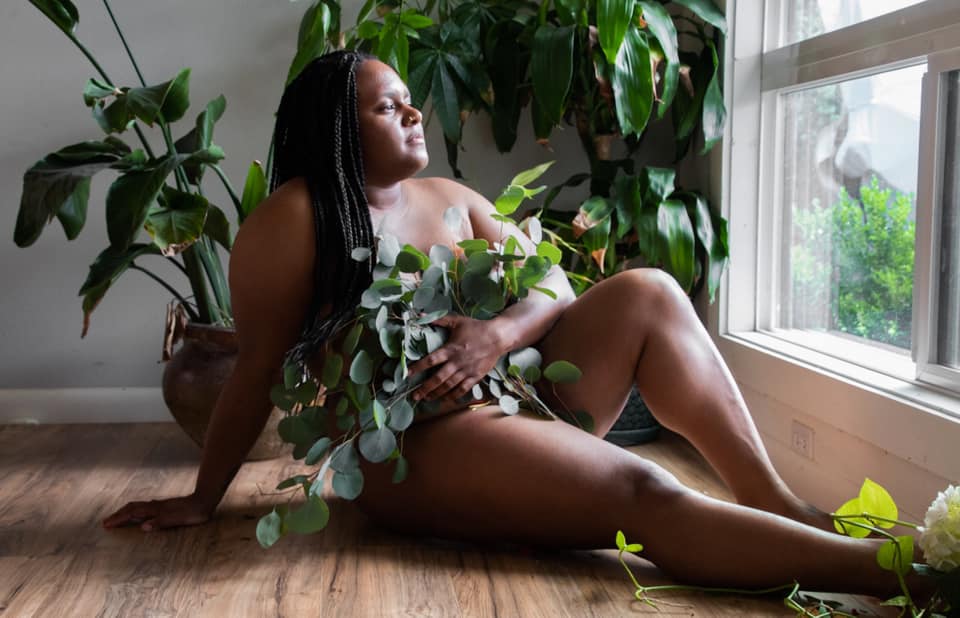
I said, “I think for me, as Black woman, I’ve been told my whole life that my body is not mine. Growing up, we were told to dress a certain way, don’t be too fast, wear things that are appropriate. I just wanted to reclaim my body and be like, this is my body. If I want to invite someone to look at it, when I want them to, that’s my choice. And if I don’t want them to, that’s also my choice.”
For me, it was taking that back, because I knew my ancestors didn’t have that sort of access. You see that now with sex workers who come forward and they say they’re raped, and people are like, this is the life you’ve chosen. No. Even unpacking that, how are we making the system safer for everyone? I’m tangenting, but I think about all those things, how society has used Black women. Especially if we’re not “palatable” black women, like not educated or thin or with long hair, you get kind of pushed to the side.
PIP: Speaking of hypervigilance, I heard something recently about how LGBTQ people are generally very hypervigilant since we’re often unsure if we can be ourselves in certain places or with new people. It was discussed how this awareness can be a positive and keep us safe, but can also create a lot of anxiety.
BJ: Yes, and I know it’s also a thing if you’ve suffered trauma; you’re hypervigilant and try to plan out to a point where you always get obsessive. My friends laugh that I’m such a calendar person, but I have to have things planned.
But yes, that’s absolutely correct. I tend to come out all the time; on Instagram and on my website, it says I’m a Black queer women. I use it like a filtering system; I want you to know who I am before we even interact so you can self-filter. So you can not be here, or if you choose to be here and are an asshole about it, it’s my space, and I have enough people who follow me and know me who will step up.
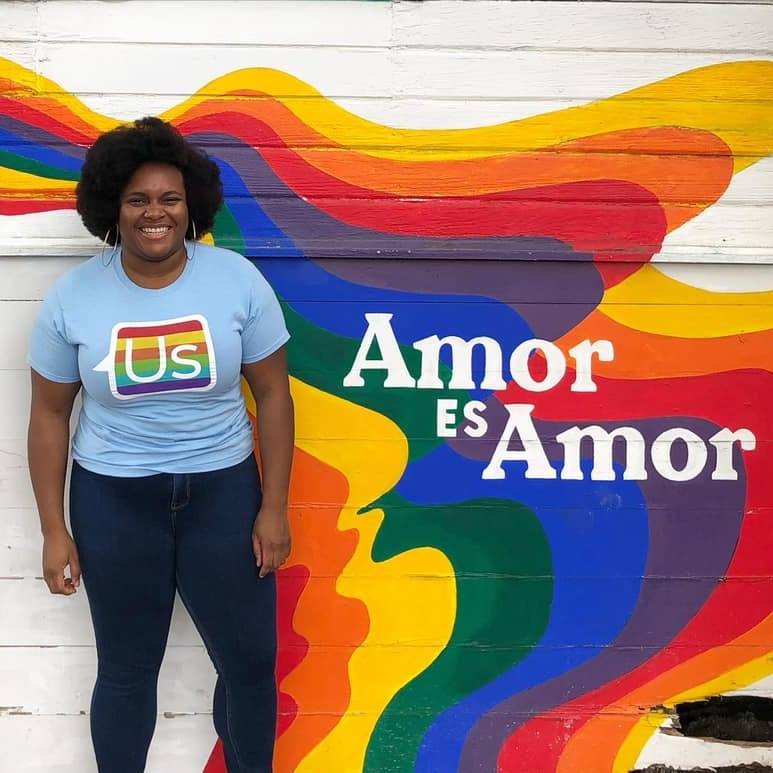
Earlier this winter some guy said some racist comments, and before I could even say something, people had already commented and reported him. For sure, hypervigilance plays into it constantly.
I’m hypervigilant in the fact that safety is always first on my brain, but I’m also hypervigilant of wanting to create spaces where people can be their most authentic selves. So I’m hypervigilant of making sure the space is safe for me, and also making it safer for others by being able to come out or even just be there. Me as a Black person with this face, they see me and know they belong there too.
PIP: That’s so interesting, how you are hypervigilant for your safety, but you also use your presence as a queer Black woman to ease others’ hypervigilance. I know your work is also very challenging and demands a lot of emotional labor. How do you take care of yourself?
BJ: It’s exhausting, I’m constantly tired, but I love what I do. It’s why I choose to run my own company and work at a nonprofit. But I’m tired all the time.
I rewatch a lot of shows I’ve already watched, because I know what’s going to happen, and it gives me good nostalgia feels of when the world wasn’t on fire. I listen to a lot of Audible books; I love to read but I’m constantly doing stuff, so I can’t sit still and read. So I listen to a lot of books and podcasts, I go for a lot of walks, and I sit outside when I can.
When the world isn’t shut down, I love a massage or a facial. And just sitting still; sometimes I’ll wake up super early and just lay in my bed for hours before I have to do anything. You can be still, not doing anything on your phone, just being here in your body. I also meditate when I remember.
PIP: In closing, what are some of your goals for the future?
BJ: I told you, I’m a planner! I have a five-year plan. I’d really like for my consulting to be my full-time job, doing speaking engagements, writing a book, doing the college tours, doing the book tour, the whole shabang.
It’s funny, every time someone asks me this, it’s so career-focused. When they ask about kids or marriage, I don’t know! I’d like to be a mom; I think I might end up adopting. I don’t know if I’ll end up married, because who knows, you can’t plan those things. I’m planning for my consulting being my full-time job, doing DEI stuff, the book I want to write, my podcast being a source of income. That’s where I am!
Learn more about Briona on her website, BrionaJenkins.com, and keep up with her on Instagram @brionajenkins.

